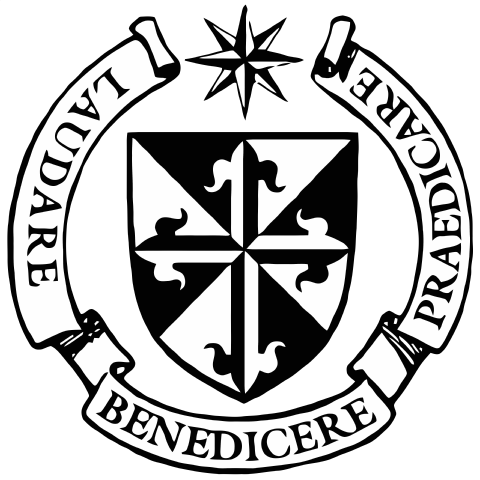Solemnity of the Most Sacred Heart of Jesus
More tortuous than all else is the human heart.
Homily given by Fr. Cyril Stola, O.P. - Ordained to the Priesthood of Jesus Christ on May 25, 2024
The heart is a desperate organ, it grasps after everything. It demands more and more and more. It reaches out in so many different directions. It often longs for things it cannot attain... and so much of what it does attain fails to satisfy. It gets one thing, but that deprives it of another, so it looks back to what it had before, mournfully.
For sinful man, the heart has movement, but no stability. It has toil, but no rest. It has travel, but no arrival. It’s like a wheel spinning in the mud, more tortuous than all else.
And yet, Almighty God took to Himself a human heart. The Word became flesh, and He made that tortuous organ the instrument of our own salvation. The Sacred Heart of our Lord and God Jesus Christ burned with love of His Father. In taking to Himself a human heart, Christ redeemed the fickleness and infinite desire of the heart, reuniting all loves into one love. It’s a love that paradoxically redounds and extends to all things by turning away from all things and cleaving to God alone.
It was by means of the wondrous love of His Sacred Heart that Jesus offered Himself on the cross for us, even unto death. There, a soldier pierced His side, and blood and water gushed forth from His heart as a fountain of mercy for us. These gifts from Christ’s Sacred Heart have the power to transform our hearts—and they do. The human heart is more tortuous than all else only under the reign of sin. We who have bathed in water from the side of Christ and who have drunk His life-giving blood have found the remedy for the heart’s instability and desperation. Jesus makes our hearts like His, He makes them burn with love for the Father and thus redirects and unites all of our affections. This is the great work of God within us. St. Paul tells the Ephesians that He kneels before the Father that we “may know the love of Christ which surpasses knowledge” and that we “be filled with all the fullness of God.” That’s the prayer of his apostolic heart. Knowing the love of Christ gives us His own fullness and stabilizes our hearts within His.
Nonetheless, even as we know this and dedicate our lives to Christ, we still see within ourselves the heart’s rebellions, the little matters over which the heart wants to say “non serviam.” And it’s not always for things objectively evil in themselves. We often seek things that are simply beside the point—It might be that we long for the approval of another person or that we seek to be noticed and praised for something we’re worked on. But these aren’t the goods the heart is meant to latch on to.
These inordinate longings need not discourage us. St. John Cassian teaches that the end of religious profession is purity of heart. It’s a continuous process towards one goal. In this life, we will always face little traces of sin within ourselves. But the exercises of the religious life—fasts, vigils, labors, penances, study, and the like—over the months and years gradually purify the heart. And this happens even at times when we find ourselves humiliated that we have rough edges that never seem to smooth out. Because when we are faced with the persistent presence of disordered longings, we are forced, again and again, to place ourselves before Christ. In doing so, we recognize our need for Him, and we’re made to trust Him. That makes our offering all the greater.
Even when our hearts waver, to put our hearts into Christ’s hands is precious in His sight. It’s the greatest offering we can give. Even the heart’s tortuous moments are part of His plan to make our hearts like His.
